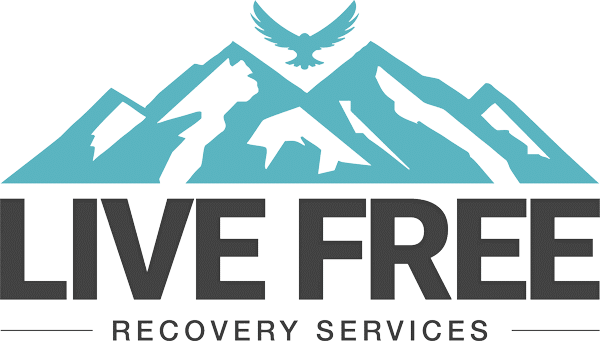Table of Contents
What is Cocaine?
Cocaine is a powdery or crystal-like stimulant that interacts with the nervous system in a way that boosts people’s energy and increases the brain’s dopamine levels. In fact, people who consume cocaine often feel a euphoric sensation. Sometimes, cocaine even makes people more alert.
As a result, some people start abusing cocaine to make themselves feel happier. This is especially true for those who suffer from mental health issues and illnesses. Just in America alone, as many as 1800 Americans use cocaine each year.
This is unfortunate, though, since cocaine is highly addictive. This means that individuals who misuse cocaine will often develop cocaine dependency, followed by cocaine addiction. If you suffer from a cocaine addiction and want to overcome it, you should immediately go to attend cocaine addiction treatment.
How Do You Use Cocaine?
Most people use the white, powdery form of cocaine by snorting it into their noses. People can also consume cocaine by rubbing it on their gums, smoking it, dissolving it in the water, or injecting it into their bodies with needles.

Street Names for Cocaine
Just like most drugs, there are various different street names for the substance cocaine. Some of the most common street names for cocaine include:
- Coke
- Blow
- Snow
- Crack
- Rock
- Flake
- White dust
- Powder
- Nose Candy
Cocaine Abuse Statistics
According to a 2018 National Survey on Drug Use and Health, around 5.5 million Americans who are age 12 or older have used cocaine or crack cocaine in the past year. According to a survey presented by the National Institute of Drug Abuse (NIDA), over 15% of American adults have tried cocaine. In a 2016 study done by the Centers for Disease Control and Prevention (CDC), cocaine abuse is most prevalent in young adulthood.
Cocaine abuse is also more prevalent among men than women. In fact, according to the 2016 CDC study that was just mentioned, 2.5% of adult males reportedly abuse cocaine. Although that may not sound like much, it is far greater than the 1.3% of females that reportedly abused cocaine at that time.
Because of how addictive cocaine is, many of the people who use cocaine develop cocaine addictions. Some of these people may even need to go to the emergency room due to their cocaine abuse.
In fact, more people need to go to the emergency room due to cocaine abuse than they do for the abuse of any other substance. This means that there are likely millions of Americans who are in need of cocaine detox and cocaine addiction treatment at any given time. Unfortunately, this also means that hospitalization and death rates due to cocaine overdose are common.
Cocaine Overdose Statistics
Similar to the gender rates by which men and women abuse cocaine, men overdose on cocaine more often than women do. In fact, between the years 2016 and 2017 alone, male deaths due to cocaine overdose increased from 4.7% to 6.2%. Female deaths due to cocaine overdose between the years 2016 and 2017 went from 1.8% to 2.5%.
Some people who consume cocaine even mix it with other illegal substances. Doing this is highly dangerous, though. This is evident by the fact that around 68% of the people admitted into emergency rooms due to cocaine use have other substances in their systems as well.

Short-Term Effects of Cocaine Abuse
Overdosing on cocaine isn’t the only effect of cocaine abuse. There are also various negative short and long-term effects of cocaine abuse.
Some of the most common short-term effects of cocaine abuse include the following:
- Boosts of energy
- Alertness
- Euphoria
- Being talkative
- Overconfidence
- Extreme sensitivity to light and sound
- Paranoia
- Anger and irritability
- Decreased appetite
Long-Term Effects of Cocaine Abuse
Just like there are short-term effects of cocaine abuse, there are also long-term effects of cocaine abuse. Many of the long-term effects of cocaine abuse are severe and can lead to serious health issues or even death. Cocaine use disorder can also lead to mental health problems like anxiety and depression.
Common long-term effects of cocaine abuse include:
- Headaches
- Convulsions
- Seizures
- Heart disease
- Heart attack
- Stroke
- Poor sex drive
- Moodiness
- Lung damage
- HIV or hepatitis due to injecting cocaine into one’s body with needles and/or mixing cocaine with the wrong substances
- Loss of smell
- Runny nose
- Nosebleed
- Trouble swallowing
- Bowel decay
Signs and Symptoms of Cocaine Overdose
There are various signs and symptoms of a cocaine overdose. Thus, it’s important to be aware of such signs and symptoms so that the person overdosing on cocaine can get treated immediately. Otherwise, there is a high chance that the person overdosing on cocaine will die. Cocaine use disorder is a serious problem that requires effective professional intervention.
Common signs and symptoms of cocaine overdose include:
- Irregular or elevated heartbeat
- High blood pressure
- Shakiness
- Seizures
- Trouble breathing
- Blurred vision
- Anxiety
- Confusion
- Being disoriented
- Hallucinations
- Heart attacks
- Strokes
Cocaine Withdrawal
Cocaine withdrawals are the symptoms that people feel whenever they minimize or discontinue their use of cocaine. Examples of cocaine withdrawal symptoms include the following:
- Intense cravings
- Fever
- Irritability
- Depression
- Suicidal thoughts
- Difficulty concentrating
- Slowed thinking
- Slowed activity
- Physical fatigue
- Restlessness
- Anxiety
- Vivid dreams and nightmares
- Chills and tremors
- Muscle aches
- Nerve pain
- Increased appetite
- Increased cocaine cravings
Cocaine Detox
To help a person manage his or her cocaine withdrawal symptoms, he or she must attend cocaine detox. Cocaine detox is the process of ridding all cocaine and any other toxic substances from one’s body. That way, individuals can enter into addiction treatment clean and sober and with their withdrawal symptoms under control.

When choosing a cocaine detox program, make sure that it’s medical and has a method that is recommended by the Substance Abuse and Mental Health Services Administration (SAMHSA). By medical, we mean that there are doctors and medical staff on standby during every step of the detox process.
Attending a medical cocaine detox program when suffering from cocaine abuse issues is vital. This is because detoxing from a highly addictive substance such as cocaine is dangerous and can lead to the development of short or long-term health issues. Therefore, having doctors and medical staff on standby throughout the cocaine detox process can help make sure that any health issues that arise during detox can be immediately treated. If you or a loved one is suffering from cocaine addiction or another substance use disorder, it’s not too late to seek treatment.
Having doctors and medical staff on standby during the cocaine detox process is also important because it allows doctors to prescribe cocaine detox patients with withdrawal medications. That way, individuals in cocaine detox can manage their withdrawal symptoms even as they are actively occurring. Right now, there is no set medication that treats cocaine withdrawal, though.
Cocaine Addiction Treatment
After a person completes cocaine detox, he or she is supposed to enter cocaine addiction treatment. During treatment, individuals receive counseling and support with one-on-one and group therapy sessions. There are various forms of cocaine addiction treatment. Some of the forms of cocaine addiction treatment that we here at Live Free Recovery offer are described below.
Inpatient Treatment
Here at Live Free Recovery, we offer the full continuum of care when it comes to drug addiction treatment. This continuum of care starts with inpatient treatment programs.
Inpatient treatment programs are for individuals who suffer from severe addictions and for relapse prevention. Thus, individuals who suffer from severe cocaine addictions can enter our inpatient cocaine addiction treatment programs. Such individuals must be prepared to live in our rehab centers 24/7 during the time period that they are receiving treatment, as inpatient treatment plan programs require it.
Partial Hospitalization Program
Partial hospitalization programs (PHPs) are the most intense outpatient treatment programs. This is because, while PHPs are outpatient, they still require their patients to attend rehab five to eight hours a day, five to seven days a week.
Because PHPs require their patients to attend rehab all day, they are good outpatient alternatives to inpatient treatment programs. Thus, individuals with moderate to severe level cocaine addictions who can’t afford to live in rehab facilities 24/7 can attend our PHP.
Intensive Outpatient Program
Intensive outpatient programs (IOPs) for cocaine abuse require their patients to attend rehab for around three to four hours a day, a few days a week. When not in rehab sessions, IOP patients can live in their own homes and tend to their normal lives.
IOPs are for individuals who suffer from moderate-level addictions. Thus, people with moderate-level cocaine addictions who can’t afford to take off from their lives completely to attend rehab should enter our IOP cocaine addiction treatment programs.
Outpatient Program
A standard outpatient program (OP) is one that requires its patients to attend rehab programs for approximately only a couple of hours a day, once or twice a week. When not in rehab, OP patients can live in their own homes and tend to their normal lives.
Because OPs don’t require their patients to attend rehab for a long period of time, this level of care is best suited for individuals with milder addictions. Thus, people with mild cocaine addictions can attend our OPs.
Receive Cocaine Addiction Treatment At Live Free Recovery
Live Free Recovery is an addiction treatment center located in New Hampshire. As an addiction treatment center, we here at Live Free Recovery offer a full continuum of care that treats moderate-level a wide variety of substance addictions, including cocaine addiction. Thus, if you or your loved ones are looking for quality cocaine addiction treatment options, look no further than Live Free Recovery.
To learn more about Live Free Recovery and the types of treatment programs and services that we offer, contact us today.
Published on: 2021-11-24
Updated on: 2024-02-16
